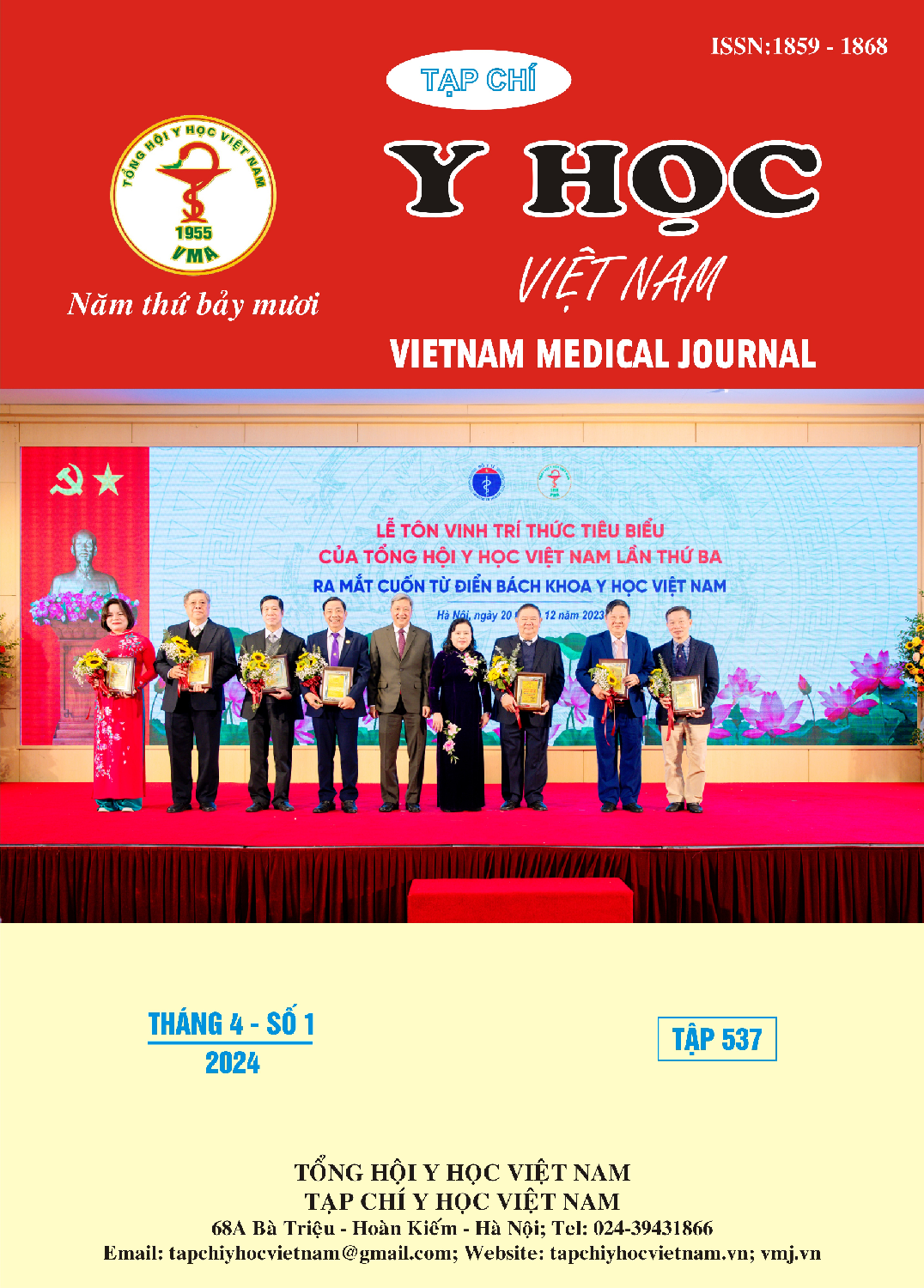U MÔ ĐỆM ĐƯỜNG TIÊU HÓA GIAI ĐOẠN DI CĂN Ở PHỤ NỮ CÓ THAI: BÁO CÁO MỘT TRƯỜNG HỢP HIẾM GẶP
Nội dung chính của bài viết
Tóm tắt
U mô đệm đường tiêu hoá (Gastrointestinal tromal tumors - GISTs) là u trung mô ác tính thường gặp nhất của đường tiêu hóa, chiếm khoảng 1-3% các u ác tính của dạ dày ruột. Sự phát triển của GISTs do đột biến gen KIT chiếm khoảng 78-88%. GIST ở dạ dày chiếm tỉ lệ cao nhất (40-60%), ruột non (20-30%) và các vị trí khác như đại trực tràng, thực quản. Chẩn đoán dựa vào mô bệnh học và hoá mô miễn dịch CD117 dương tính. Phẫu thuật là phương pháp điều trị chính, điều trị bổ trợ bằng imatinib giúp kéo dài thời gian sống và giảm tỉ lệ tái phát. Tỷ lệ mắc GISTs ngày càng tăng ở bệnh nhân trẻ tuổi và việc điều trị thành công GISTs làm phát sinh các vấn đề liên quan đến khả năng sinh sản ở những bệnh nhân đang điều trị với imatinib. Trên nhóm bệnh nhân này, khuyến cáo sử dụng các biện pháp tránh thai hoặc đình chỉ thai nghén sớm, tuy nhiên một số bệnh nhân vẫn mong muốn có thai. Chúng tôi báo cáo một trường hợp lâm sàng hiếm gặp được điều trị tại bệnh viện K, bệnh nhân GIST giai đoạn di căn, trong qua trình điều trị với iamtinib bệnh nhân mang thai thành công 3 lần.
Chi tiết bài viết
Từ khóa
U mô đệm dạ dày ruột, thai nghén, imatinib.
Tài liệu tham khảo
2. Miettinen M. and Lasota J. (2001). Gastrointestinal stromal tumors--definition, clinical, histological, immunohistochemical, and molecular genetic features, and differential diagnosis. Virchows Arch Int J Pathol, 438(1), 1–12.
3. Roggen J.F.G. van, Velthuysen M.L.F. van, and Hogendoorn P.C.W. (2001). The histopathological differential diagnosis of gastrointestinal stromal tumors. J Clin Pathol, 54(2), 96–96.
4. Liang X., Yu H., Zhu L.-H., et al. (2013). Gastrointestinal stromal tumors of the duodenum: Surgical management and survival results. World J Gastroenterol WJG, 19(36), 6000–6010.
5. Ault P., Kantarjian H., O’Brien S., et al. (2006). Pregnancy among patients with chronic myeloid leukemia treated with imatinib. J Clin Oncol Off J Am Soc Clin Oncol, 24(7), 1204–1208.
6. Hensley M.L. and Ford J.M. (2003). Imatinib treatment: specific issues related to safety, fertility, and pregnancy. Semin Hematol, 40(2 Suppl 2), 21–25.
7. Pye S.M., Cortes J., Ault P., et al. (2008). The effects of imatinib on pregnancy outcome. Blood, 111(12), 5505–5508.


